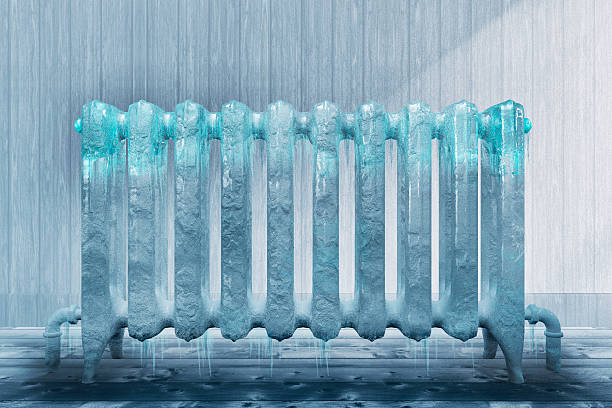How to Bleed Your Radiators to Save Money on Energy Bills: A Beginner's Guide
Bleeding your radiators is a simple and easy way to improve their efficiency and save money on your energy bills. When air gets trapped in your radiators, it prevents the hot water from circulating properly, which means that your radiators won't heat up as well as they should. This can lead to higher energy bills, as your boiler will have to work harder to heat your home.

Tools and Materials Required
- Radiator key
- Towel or rag
- Bucket (optional)
Steps on How to Bleed Your Radiators
- Turn off your central heating.
- Locate the bleed plug. This is usually a small square or hexagonal screw located at the top of the radiator, opposite the inlet valve.
- Place a towel or rag under the bleed plug.
- Turn the bleed plug anti-clockwise using the radiator key. You should hear a hissing sound as the air escapes from the radiator.
- Allow the air to escape until you see a steady stream of water flowing out.
- Close the bleed plug by turning it clockwise.
- Wipe away any water that has dripped onto the floor.
- Repeat steps 3-7 for each radiator in your home.
Tips and Tricks
- If you have a lot of air in your radiators, it may take a few minutes for the hissing sound to stop. Be patient and don't overtighten the bleed plug.
- If you have trouble turning the bleed plug, you can try using a wrench or pliers.
- If you have any concerns, it is always best to consult a qualified plumber.
Does and Don'ts
- Do:
- Turn off your central heating before you start bleeding your radiators.
- Place a towel or rag under the bleed plug to catch any water that drips out.
- Allow the air to escape until you see a steady stream of water flowing out.
- Close the bleed plug tightly after you have finished bleeding the radiator.
- Don't:
- Overtighten the bleed plug, as this can damage it.
- Try to bleed your radiators while your central heating is turned on.
- Leave the bleed plug open for too long, as this can waste water.
The Efficiency Savings on Heating Bills When Radiators Are Running at Their Most Efficiency
The exact amount of money you can save by bleeding your radiators will depend on a number of factors, such as the size of your home, the type of radiators you have, and how well they were installed in the first place. However, it is estimated that bleeding your radiators can save you up to 10% on your heating bills.
This is because bleeding your radiators removes any trapped air, which allows the hot water to circulate more efficiently. This means that your radiators will heat up more quickly and evenly, and your boiler will have to work less hard.
If after you have bled the radiators and you are still experiencing issues with radiator temperatures or issues with your boiler, then it maybe time for a new one. If this is the case fear not as you can get a brand new boiler, delivered and installed for around £1,500 for Boxt! At the moment we have a £150 off Boxt voucher code that can help with the expense of a new boiler.Having a new boiler can dramatically reduce your heating bills so it is well worth investigating this.
How Often Should You Bleed Your Radiators?
It is a good idea to bleed your radiators at least once a year, or more often if you live in an area with hard water. This is because hard water contains minerals that can build up in your radiators and restrict the flow of water.
Additional Information
Here are some additional things to keep in mind when bleeding your radiators:
- If you have a combi boiler, you will need to bleed your radiators while they are cold.
- If you have a traditional boiler with a header tank, you can bleed your radiators while they are hot or cold.
- If you have any concerns about bleeding your radiators, it is always best to consult a qualified plumber.
Efficiency Savings
The following table shows the potential efficiency savings that can be achieved by bleeding your radiators:
|
|
|
|
|
|
|
|
|
Conclusion
Bleeding your radiators is a simple and easy way to improve their efficiency and save money on your energy bills. It is a job that can be done by anyone, even if you have no plumbing experience. Just follow the steps in this guide and you will be on your way to having warmer radiators and lower energy bills.
Authored by Julian House on 31st October 2023





